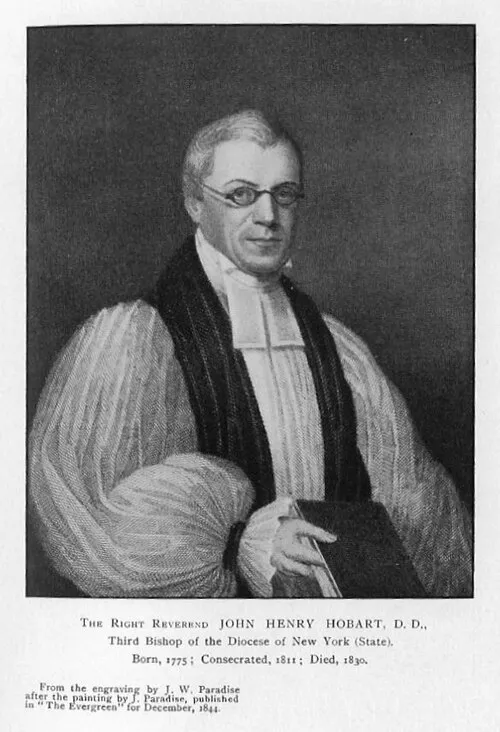
John Henry Hobart: A Pioneering Figure in the Episcopal Church (USA)
John Henry Hobart (1775-1830) played a pivotal role in shaping the Episcopal Church in the United States during its formative years. As a prominent bishop and theologian, Hobart's contributions extended beyond mere administration; he was a key advocate for educational reform, missionary work, and church governance.
Early Life and Education
Born on September 14, 1775, in Philadelphia, Hobart was raised in a family of Irish descent. After completing his studies at the College of New Jersey (now Princeton University), he was ordained in 1798. His early experiences in a post-Revolutionary America, where religious landscapes were shifting, significantly influenced his future work.
Bishop of New York
In 1811, Hobart was consecrated the second Bishop of New York, a position he held until his death in 1830. As bishop, he faced the challenges of a new nation, where the Anglican traditions needed adaptation to fit the American context. He became known for his vigorous promotion of the church as a vital institution in American society.
Missionary Endeavors
One of Hobart's noteworthy contributions was his emphasis on missionary work. He believed in spreading the message of the Gospel to the burgeoning populations in the western territories of the United States. Hobart helped establish a number of missions and advocated for the training of clergy to serve these communities, recognizing that a strong church presence was crucial for national moral and social development.
Educational Reform
Hobart was an ardent supporter of religious education, believing that a well-educated clergy was essential for the church's vitality. He established several theological seminaries, which helped educate future generations of Episcopal leaders. His commitment to education extended to laypeople as well, emphasizing the importance of catechism and personal study of Scriptures.
Theological Contributions
As a theologian, Hobart is often recognized for his strong advocacy of the Book of Common Prayer and the Thirty-Nine Articles, which served as foundational texts for the Episcopal Church. He wrote extensively on the nature of the church, the sacraments, and the role of tradition and scripture in the life of believers. His writings remain influential in discussions about Anglican theology today.
Legacy
John Henry Hobart's lasting impact on the Episcopal Church is evident in both its structure and its mission. His vision for a church that engages actively with society and prioritizes education and outreach continues to resonate. The dioceses he helped to establish and nurture remain vibrant components of the U.S. Episcopal landscape.
Conclusion
John Henry Hobart's life and work exemplify the dynamic relationship between faith and society in the early 19th century America. His commitment to education, missionary work, and strong theological foundations has established a legacy that endures to this day. As the Episcopal Church continues to evolve, Hobart's vision offers valuable insights into the essential role of the church in a rapidly changing world.






